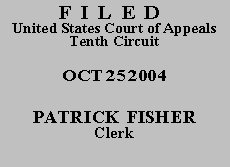

| ERNI IRAWATI SETYAWAN,
Petitioner, v. JOHN ASHCROFT, Attorney General, Respondent. |
|
Erni Setyawan appeals a Board of Immigration Appeals ("BIA") decision denying her request for asylum and for withholding of removal. We AFFIRM.
Setyawan, a native and citizen of Indonesia, came to the United States on a visitor's visa in July 2000. She admits that her visa has since expired. Alleging that she would face persecution in Indonesia because she is Christian and ethnically Chinese, she has requested asylum and withholding of removal.(1)
Setyawan appeared before an immigration judge ("IJ") and testified that she resided most recently in the city of Surabaya. She claimed that she was afraid to return to Surabaya because her church there was stoned on two separate occasions. She further testified that she was subjected to job discrimination, sexual harassment on the streets, and frequent robbery attempts. In one incident described at the hearing, Setyawan was surrounded by four teenagers, who harassed her while saying, "you are Chinese." Setyawan said that her mother and sister suffered similar treatment in Surabaya; another sister, living in Bantung, experienced less harassment, partly because Bantung is smaller than Surabaya and partly because this sister always travels with her husband.
In denying Setyawan's request for asylum and withholding of removal, the IJ characterized Setyawan's commitment to Christianity as "equivocal," based on a discrepancy between her asylum application and her testimony at the hearing. The application stated that Setyawan was a Seventh Day Adventist, but at the hearing she testified that she was a Baptist. With respect to Setyawan's allegations of ethnic persecution, the IJ expressed doubt that Setyawan genuinely feared returning to Indonesia, as she returned voluntarily after a trip to Singapore shortly before her move to the United States. In addition, the IJ found that the attacks against Setyawan were inspired by "criminal motives" rather than ethnic prejudice.
After noting that the IJ never made an adverse credibility finding regarding Setyawan's religious devotion, the BIA accepted Setyawan's factual assertions as true and nevertheless determined that she had no well founded fear of religious persecution. The BIA based its conclusion on information about Muslim-Christian conflict in Indonesia including Setyawan's own testimony that established that the problem was not severe in Surabaya, and was even less so in Bantung. As for ethnic persecution, the BIA concluded that the attacks against her and her family were "random criminal behavior," not hate crimes targeting Sino-Indonesians.
In order to establish that she is eligible for asylum, Setyawan must prove that she "either (1) has a well-founded fear of future persecution, (2) has suffered past persecution, which gives rise to a rebuttable presumption of a well-founded fear of future persecution, or (3) has suffered past persecution so severe as to demonstrate compelling reasons for being unwilling or unable to return to [her] country of nationality." Wiransane v. Ashcroft, 366 F.3d 889, 893 (10th Cir. 2004) (alterations, citations, and quotations omitted). We will not reverse the BIA's denial of an asylum application "unless the evidence compels the conclusion that petitioner[] [has] a well-founded fear of persecution on one of the . . . grounds" set forth in the applicable statute. Estrada-Escobar v. Ashcroft, 376 F.3d 1042, 1046 (10th Cir. 2004); see also 8 U.S.C. § 1101(a)(42)(A) (defining "refugee," as used in the asylum statute (8 U.S.C. § 1158(b)), as a person unable to return to her home country due to persecution based on "race, religion, nationality, membership in a particular social group, or political opinion").
Setyawan contends that the IJ's findings were premised on a defective credibility determination arising from a clerical error on her asylum application. As discussed above, however, the IJ never made an adverse credibility finding and the BIA accepted Setyawan's assertions as true, but nonetheless concluded that Setyawan had no well founded fear of religious persecution. Thus, Setyawan is not entitled to relief based on the IJ's alleged error. Furthermore, despite Setyawan's implicit argument to the contrary, the IJ's assessment of her credibility did not infect the BIA's evaluation of her testimony.
Although Setyawan maintains that her testimony establishes that she was harassed because she is Chinese, she in fact described only one incident in which her assailants made an anti-Chinese statement. Moreover, she acknowledged that the robbers who attacked her and her neighbors did so to acquire money. See Gormley v. Ashcroft, 364 F.3d 1172, 1177 (9th Cir. 2004) (upholding denial of asylum where applicant failed to prove that robberies in his home country were motivated by race, rather than by his possession of valuables). On this record, the BIA did not err in concluding that Setyawan's characterization of her assailants' motives amounted to "mere conjecture." Because Setyawan did not establish that she was mistreated based on her nationality, or another protected ground under § 1101(a)(42), the BIA properly denied her request for asylum.
For the foregoing reasons, the decision of the BIA denying Setyawan's application for asylum is AFFIRMED. We also AFFIRM the refusal to withhold removal, as the threshold for withholding is higher than the threshold for asylum. See Estrada-Escobar, 376 F.3d at 1048.
Entered for the Court
Circuit Judge
*. The case is unanimously ordered submitted without oral argument pursuant to Fed. R. App. P. 34(a)(2) and 10th Cir. R. 34.1(G). This order and judgment is not binding precedent, except under the doctrines of law of the case, res judicata, and collateral estoppel. The court generally disfavors the citation of orders and judgments; nevertheless, an order and judgment may be cited under the terms and conditions of 10th Cir. R. 36.3.
1. "Setyawan" is an Indonesian name. Appellant also has a Chinese name.